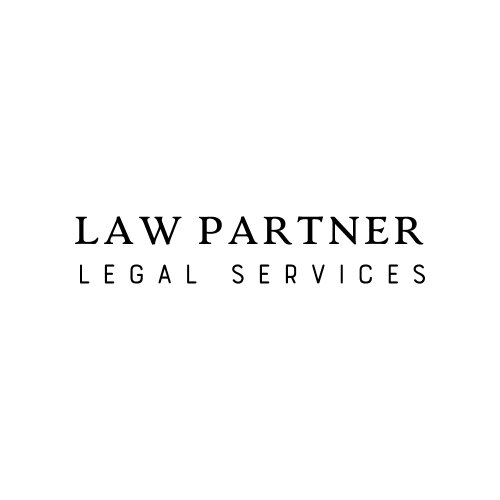Best Financial Services Regulation Lawyers in Vilnius
Share your needs with us, get contacted by law firms.
Free. Takes 2 min.
List of the best lawyers in Vilnius, Republic of Lithuania
About Financial Services Regulation Law in Vilnius, Republic of Lithuania
Financial Services Regulation in Vilnius, Republic of Lithuania is designed to ensure the integrity, transparency, and efficiency of the financial and banking systems. The regulation framework covers a range of financial services, including banking, securities, insurance, and investment management. Lithuania, as a member of the European Union, aligns closely with EU directives and regulations, while also maintaining its own national regulations to address local market-specific needs. The Bank of Lithuania is the primary regulatory authority overseeing financial services in the country.
Why You May Need a Lawyer
There are several situations where individuals and businesses might require legal assistance in Financial Services Regulation:
- Compliance Issues: Businesses need to ensure they comply with both local and EU financial services regulations.
- Licensing: Companies looking to operate in the financial sector need assistance with obtaining necessary licenses and permits.
- Dispute Resolution: Legal expertise may be required to resolve disputes involving financial transactions or services.
- Regulatory Updates: Adapting to new regulations or updates can be complex, and legal guidance ensures adherence and seamless integration.
- Mergers and Acquisitions: Legal oversight is essential in transactions involving mergers, acquisitions, or restructuring within the financial sector.
Local Laws Overview
Financial services in Vilnius are governed by a combination of Lithuanian national law and European Union regulations. Key aspects include:
- Bank of Lithuania: Acts as the central regulatory authority, implementing monetary policies and overseeing financial markets.
- Law on Banks: Regulates activities of banks and establishes the operational guidelines for financial institutions.
- Law on Financial Markets: Governs the regulation of financial instruments, trading platforms, and market participants.
- Anti-Money Laundering (AML): Local AML laws require financial institutions to implement strict compliance measures to prevent illicit financial activities.
- Data Protection Laws: Consistent with GDPR, focusing on the handling and protection of personal data within financial services.
Frequently Asked Questions
What is the role of the Bank of Lithuania in financial regulation?
The Bank of Lithuania supervises the financial market, ensures compliance with regulatory standards, and implements monetary policy in line with both national and EU directives.
Do I need a license to operate a financial services business in Vilnius?
Yes, obtaining the appropriate license from the Bank of Lithuania is necessary to offer financial services, which ensures all operations are conducted lawfully and in compliance with the relevant regulations.
How does Lithuania's financial regulation align with EU directives?
Lithuania's financial regulations are closely aligned with EU directives, ensuring cohesion with wider European standards while allowing some flexibility to address local requirements.
What are the main compliance challenges in financial services regulation?
Compliance challenges include adapting to regulatory changes, implementing robust anti-money laundering measures, and ensuring data protection and privacy standards are met.
How are consumer rights protected in Lithuania's financial services?
Consumer rights are protected through a combination of national laws and EU regulations, which ensure transparency, fair treatment, and access to effective dispute resolution mechanisms.
What are the penalties for non-compliance with financial regulations?
Penalties can range from fines to license revocations and, in severe cases, criminal charges depending on the nature and severity of the regulatory breach.
What is the significance of GDPR in financial services in Lithuania?
GDPR, applicable across the EU, mandates strict data protection requirements which are crucial for financial services that handle personal data, ensuring consumer privacy and security.
How can financial disputes be resolved in Lithuania?
Disputes can be resolved through negotiation, mediation, arbitration, or through the court system, with specialized financial dispute resolution mechanisms available.
Are there specific laws governing fintech companies in Lithuania?
Yes, fintech companies are subject to the same financial regulations as traditional financial services, with specific guidelines to address digital finance and innovative technologies.
How often do financial regulations change in Lithuania?
Regulations are frequently updated to address evolving market conditions, technological advancements, and changes in EU directives, necessitating ongoing compliance efforts.
Additional Resources
For further assistance, consider the following resources:
- Bank of Lithuania - Main regulatory body overseeing financial services.
- Financial Crime Investigation Service - Focuses on anti-money laundering efforts.
- Ministry of Finance of the Republic of Lithuania - Provides updates and guidance on financial policies and laws.
- European Central Bank - Offers resources on EU-wide financial regulations applicable in Lithuania.
Next Steps
If you require legal assistance in Financial Services Regulation:
- Consult with a legal expert specializing in Lithuanian financial law to assess your needs.
- Prepare any documentation or information relevant to your situation for the consultation.
- Consider reaching out to the Bank of Lithuania or other governmental bodies for compliance guidance and resources.
- Stay informed about updates to local and EU regulations that may impact your operations.
Lawzana helps you find the best lawyers and law firms in Vilnius through a curated and pre-screened list of qualified legal professionals. Our platform offers rankings and detailed profiles of attorneys and law firms, allowing you to compare based on practice areas, including Financial Services Regulation, experience, and client feedback.
Each profile includes a description of the firm's areas of practice, client reviews, team members and partners, year of establishment, spoken languages, office locations, contact information, social media presence, and any published articles or resources. Most firms on our platform speak English and are experienced in both local and international legal matters.
Get a quote from top-rated law firms in Vilnius, Republic of Lithuania — quickly, securely, and without unnecessary hassle.
Disclaimer:
The information provided on this page is for general informational purposes only and does not constitute legal advice. While we strive to ensure the accuracy and relevance of the content, legal information may change over time, and interpretations of the law can vary. You should always consult with a qualified legal professional for advice specific to your situation.
We disclaim all liability for actions taken or not taken based on the content of this page. If you believe any information is incorrect or outdated, please contact us, and we will review and update it where appropriate.














